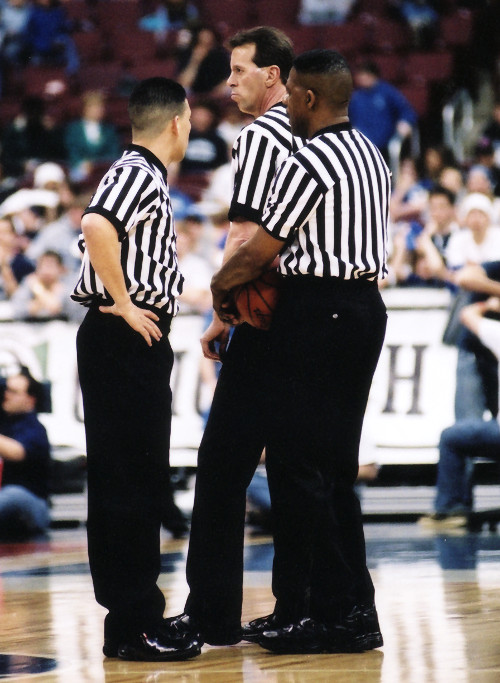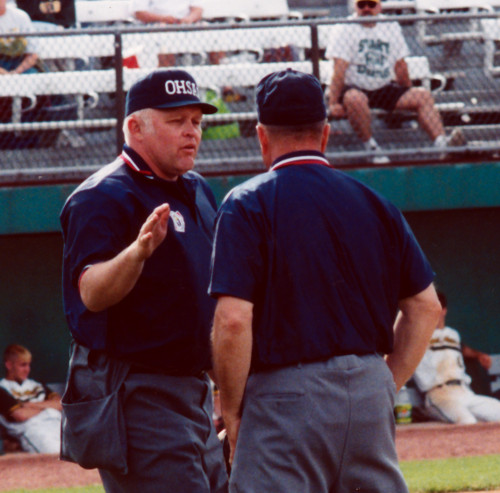
Many officials are assigned to work a contest and the information they receive includes the position they will be working. It could mean being assigned as the plate umpire, the referee or any other part of the officiating crew. Officials should understand that assignment, the tasks expected of them and be prepared accordingly. A crew chief should be prepared for each pregame scenario.
There are still some officials that are hired or assigned to work a contest where the officials are expected to pick their positions on the crew when they are assembled. This can lead to strange pregame discussions and sometimes even hurt feelings. Sometimes an official’s ego takes over the discussion or their bravado in wanting to show nothing scares them can take the lead. In the vast majority of cases, it really doesn’t matter which official works in which position but it is a discussion everyone must be prepared for.
Some officials keep a little notebook of every official they work with in each sport. When they gather in the locker room, the notebook serves as the reference for what positions they held the last time this crew worked together and they simply rotate for the contest. Other officials work with the same partner or crew so often they can remember their roles from contest to contest and do their own rotation.
The challenge comes when the officials have never worked together and have little information on the reputation or strengths of their partners. “Trust your partners,” we are often told, but sometimes such trust isn’t well founded. Perhaps this challenge is not as great in basketball or football as it could be in baseball, softball, volleyball, etc.

How do you react as the gray-haired veteran assigned to work a game with a partner who announces he is only in his first season but wants to be behind the plate? Do you take into account the coaches; the team’s records; who is pitching; or just accept his willingness to work? What should be the comment when the young lady standing next to you says that she has always wanted to serve as the up official at this large school and you know this is going to be a brutal match between two top teams?
Follow your gut. We were all the new official on the scene at one time. Ask a few probing questions to access your own comfort level without being insulting. Be alert to unique situations where you may need to step in and support your younger partner, without throwing him or her under the bus. If necessary, offer subtle hints for improvement during timeouts or between innings. After all, working as a team is required of all the officials working the contest. Supporting each other is an idea that works.
Dave Sheets
David Sheets, a licensed basketball, football and volleyball official from Indiana, is the chairperson of the NFHS Officials Publications Committee. Sheets recently earned the designation of “Master Cooperative Communicator” from the Cooperative Communicators Association.
Most Recent Articles
- nfhs news NFHS Learning Center Delivers 25 Millionth Course
- Track & Field/Cross Country article Effective Communication with Athletes and Coaches
- nfhs news Player Equipment Changes Highlight 2025 High School Football Rules Revisions
- Player Equipment Changes Highlight 2025 High School Football Rules Revisions
- nfhs news Judgment Call on Second Contact Eliminated in High School Volleyball






